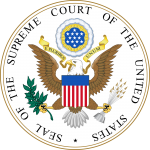On January 26, 2015, the Secretary of the United States Department of Health and Human Services (“HHS”), Sylvia Mathews Burwell, announced two important goals for the Department:
- Increase the percentage of Medicare provider payments that are made through alternative payment models based on how well the providers care for patients, rather than the amount of care provided. The percentage goals for these alternative payment models are 30% by 2016 and 50% by 2018.
- Tie virtually all Medicare fee-for-service payments (85% in 2016 and 90% in 2018) to quality and value.
This announcement puts hard numbers on the goal to move away from traditional fee-for-service Medicare payments that has been stated generally since at least 2010 when the Affordable Care Act was enacted. By clearly delineating specific figures for alternative payment models, such as accountable care organizations and bundled payment arrangements, from those figures for payment methods, HHS has made it clear that providers should be thinking not just about different forms of payment but different forms of organizations and relationships with other providers. Alternative payment models generally require coordination among different types of providers who may not otherwise be related to each other.
While the announced goals focus on the Medicare fee-for-service system, it is clear that HHS intends the impact of these goals to be far broader. Ms. Burwell also announced the creation of a Health Care Payment Learning and Action Network to facilitate a public-private sector partnership to “continue to build on our work with state Medicaid agencies, private payers, employers, consumers and other partners,” while welcoming the fact that “our partners in the private sector have the opportunity to be even more aggressive” in establishing alternative payment models and pay-for-value compensation systems. On the same day as Ms. Burwell’s announcement, the Centers for Medicare and Medicaid Services released a fact sheet stating that it is taking action with a goal to spend “our health dollars” more wisely, citing the importance of the goal for patients, families, providers, tax payers, employers, states and insurance companies, and making it clear that HHS and CMS fully intend to have their efforts to transform health care delivery and payment systems to reverberate well beyond the Medicare program.
About The Authors
Tags: ACA, ACO, alternative payment model, cms, fee-for-service, HHS, medicaid, medicare
Posted by Ryan Blaney
on January 26, 2015
Supreme Court /
No Comments
 Justice Clarence Thomas and a unanimous US Supreme Court decided to vacate a Sixth Circuit decision and hold that the federal courts cannot assume from silence in a union’s collective bargain agreement that retiree group health insurance benefits continue indefinitely. The Supreme Court found that collective bargain agreements should be treated the same as other contracts when the principles are consistent with federal labor policy.
Justice Clarence Thomas and a unanimous US Supreme Court decided to vacate a Sixth Circuit decision and hold that the federal courts cannot assume from silence in a union’s collective bargain agreement that retiree group health insurance benefits continue indefinitely. The Supreme Court found that collective bargain agreements should be treated the same as other contracts when the principles are consistent with federal labor policy.
The Court rejected the UAW-Yard Man decision and accompanying long standing principle called the Yard-Man Rule which provided that in the absence of clear contractual language a collective bargain agreement vested retirees with lifetime benefits. The Supreme Court’s M&G Polymers v. Tackett USA decision is attached here.
Check back for more in-depth analysis and coverage on this decision and its impact on employee benefits litigation or feel free to contact Cozen O’Connor’s Health Law and Employee Benefits Teams.
About The Author
Tags: Collective-Bargaining, contracting, ERISA, Health Employee Benefits, Justice Thomas, Retirees, Unions
Posted by Ryan Blaney
on January 22, 2015
Encryption /
No Comments

This month, Governor Chris Christie signed into law a New Jersey bill requiring health insurance carriers (e.g., insurance companies, health service corporations, hospital service corporations, medical service corporations, HMOs that issue health benefits plans in New Jersey) to encrypt or otherwise secure computerized records of personal information (e.g., SSN, address, identifiable health information, driver’s license number) (“Bill”). The Bill provides an alternative to encryption if the carrier uses, a “method or technology rendering the information unreadable, undecipherable, or otherwise unusable by an unauthorized person.” However, password protection for computer programs, which is commonly used in the industry, is inadequate under the Bill if “the program only prevents general unauthorized access to the personal information, but does not render the information itself unreadable, undecipherable, or otherwise unusable by an unauthorized person operating, altering, deleting, or bypassing the password protection computer program.”
The Bill does not address the ramifications for insurance carriers that fail to adhere to its requirements. However, in a statement by the Bill’s sponsors, the lawmakers explained that health insurance carriers that violate the Bill would be subject to penalties under the New Jersey consumer fraud statute, such as a monetary penalty up to $10,000 for an initial offense, and no more than $20,000 for each subsequent offense(s). Lawmakers further explained that “a violation can result in cease and desist orders issued by the Attorney General and the awarding of treble damages and costs to the injured party.”
Interestingly, this Bill only applies to health insurance carriers and not to healthcare providers, such as hospitals or physician group practices. However, it is anticipated that New Jersey will follow the industry enforcement trend that although encryption is not technically required under HIPAA it is considered a “reasonable” technical safeguard and therefore becoming an industry standard best practice. The timing of the Bill is also interesting as President Obama and the Federal Government discuss potential Federal legislation on cybersecurity, student privacy, and a national breach standard. Tune back in to the Health Law Informer for future blogs on these issues.
About The Authors
Tags: cybersecurity, encryption, HIPAA, HMO, insurance carrier, insurance company, national breach standard, password, secure, security
 Justice Clarence Thomas and a unanimous US Supreme Court decided to vacate a Sixth Circuit decision and hold that the federal courts cannot assume from silence in a union’s collective bargain agreement that retiree group health insurance benefits continue indefinitely. The Supreme Court found that collective bargain agreements should be treated the same as other contracts when the principles are consistent with federal labor policy.
Justice Clarence Thomas and a unanimous US Supreme Court decided to vacate a Sixth Circuit decision and hold that the federal courts cannot assume from silence in a union’s collective bargain agreement that retiree group health insurance benefits continue indefinitely. The Supreme Court found that collective bargain agreements should be treated the same as other contracts when the principles are consistent with federal labor policy.